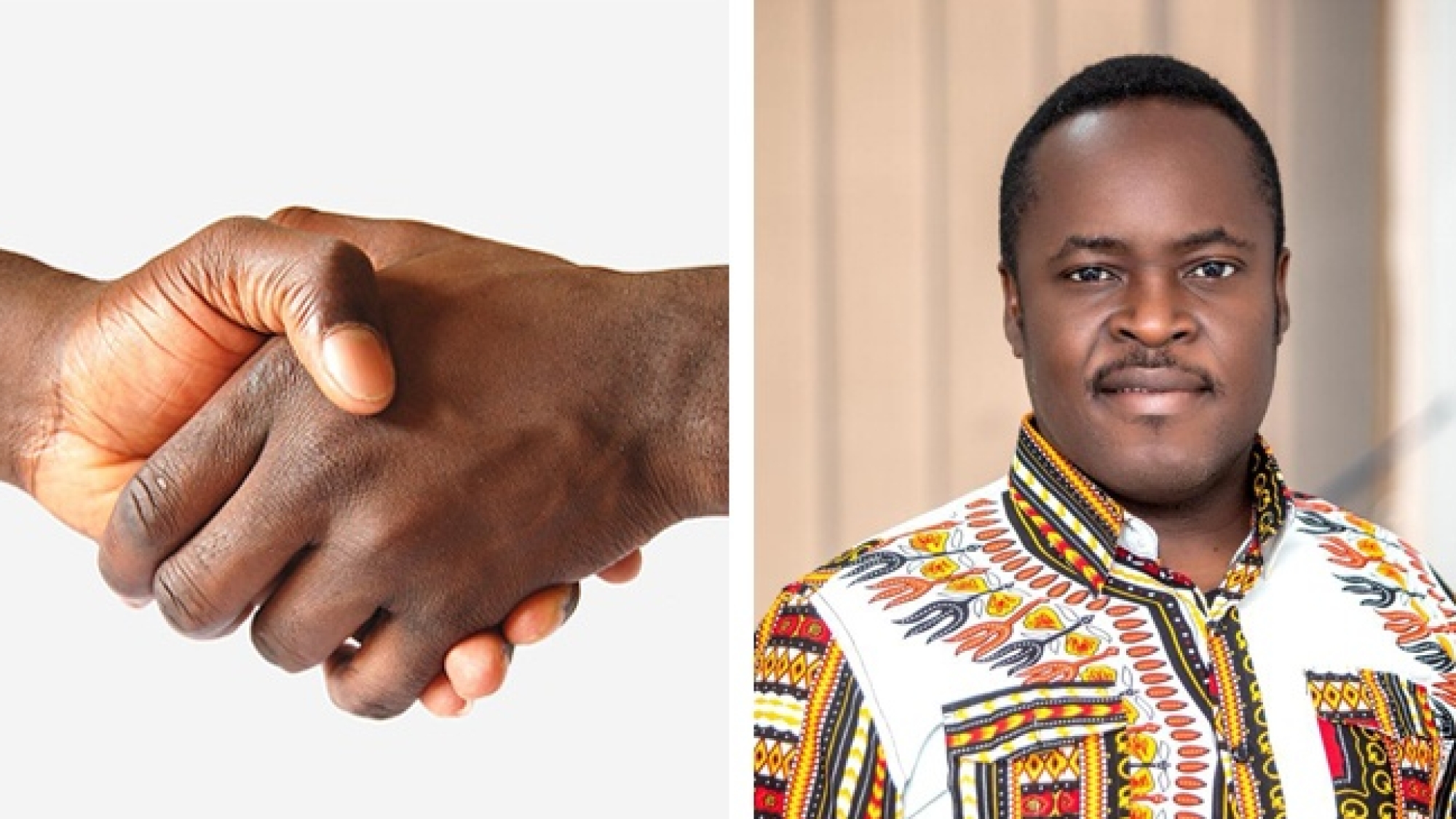Spirituality is a personal and intimate journey that requires time, effort, and dedication. We often feel disconnected and lost as we seek to connect with God. We search for answers and guidance daily and sometimes struggle to find peace. However, there is a secret place of the Most High God where we can discover and find refuge and rest. This is a place where intimacy with God is cultivated, and faith is strengthened. In this article, we will embark on a journey of faith and intimacy, exploring the hidden treasures of the secret place of the Most High God. We will delve into the word of God, discovering the secrets of this mysterious place and how to access it. Join me as we embark on this journey of faith and intimacy and discover the power of the secret place of the Most High God.
INTRODUCTION TO THE SECRET PLACE
The Secret Place is a term used to describe the intimate relationship that we can have with God. It is a place of refuge, peace, safety, and rest. It is a place where we can commune with God, hear His voice, and be refreshed and recharged. The Secret Place is not just a physical location but a spiritual place within us.
Discovering the Secret Place of the Most High God is a journey of faith and intimacy. It is a journey that requires us to seek God with all our hearts, draw near to Him, and be still and know He is God. This journey is not always easy and can be filled with challenges, but the rewards are immeasurable. As we draw closer to God and enter the Secret Place, we will experience deeper peace, joy, and love than we ever thought possible.
In this journey, we will discover that the Secret Place is not just for a select few but is available to all who seek it. It is where we can experience God’s presence and power and find the answers and direction we need. So, let us begin this journey of discovering the Secret Place of the Most High God and draw near to Him with faith and expectation.
WHAT IS THE SECRET PLACE OF THE MOST HIGH GOD?
The Secret Place of the Most High God is a place where you can experience the presence of God in a unique way. It is a place of intimacy and closeness with God that goes beyond the ordinary. It is a place where you can find rest, peace, and comfort amid life’s challenges. This secret place is not a physical location but rather a spiritual realm that is accessible to everyone who seeks it with a sincere heart.
In this place, you can hear God’s voice speaking to and guiding you. You can experience His love in a way that surpasses human understanding. Many people have described this place as a place of refuge where they can find protection from the storms of life.
The Secret Place of the Most High God is not just for a select few, but it is available to anyone who seeks it. It is a journey of faith and intimacy that requires a deep desire to know God more intimately. It requires a willingness to spend time alone with God, seek His face, and listen for His voice.
As you embark on this journey, you will discover the beauty and wonder of the Secret Place of the Most High God. It will transform your life and bring you into a deeper relationship with God that will sustain you in all seasons of life.
HOW TO ENTER THE SECRET PLACE
Entering the Secret Place of the Most High God may seem elusive, but it is quite simple. It starts with having a personal relationship with God through faith in Jesus Christ. This means confessing your sins, repenting, and accepting Jesus as your Lord and Savior. Once you have placed your faith in Jesus, you become a child of God and have access to the Secret Place.
To enter the Secret Place, you must also cultivate a lifestyle of prayer and worship. This involves taking intentional steps to prioritise time with God, whether it is through daily devotions, attending church services, or participating in small group studies. In addition, you should make a conscious effort to live a life that is pleasing to God by obeying His commands and aligning your actions with His will.
Another important aspect of entering the Secret Place is learning to listen to the Holy Spirit. The Holy Spirit is our guide and counsellor, and He will lead us into all truth. By learning to recognise His voice and following His promptings, we can experience a deeper level of intimacy with God and better understand His love and purpose for our lives.
Overall, entering the Secret Place of the Most High God requires an open heart receptive to His presence. By placing our faith in Jesus, cultivating a lifestyle of prayer and worship, and listening to the Holy Spirit, we can experience the fullness of His love and grace and enter into the Secret Place where we can abide in His peace and rest.
THE BENEFITS OF DWELLING IN THE SECRET PLACE
Dwelling in the Secret Place of the Most High God is a beautiful and unique experience that brings numerous benefits to our lives. When we find ourselves in this place of intimacy and closeness with God, we experience unparalleled peace, joy, and a sense of security.
One of the most significant benefits of dwelling in the Secret Place is the opportunity to experience a deep and transformative relationship with God. In this place of intimacy, we can hear His voice more clearly, understand His heart and will for our lives, and experience His presence in a real and tangible way.
Furthermore, dwelling in the Secret Place provides us with a sense of rest and rejuvenation essential to our spiritual and emotional well-being. In this place, we can lay down our burdens, find solace amid life’s chaos, and receive the strength to face whatever comes our way.
Another benefit of dwelling in the Secret Place is the protection it offers us from the challenges and struggles of life. When we dwell in this place of intimacy with God, we are hidden in Him, shielded from the enemy’s attacks, and kept safe amid life’s storms.
Finally, dwelling in the Secret Place aligns us with God’s purposes and plans. When we spend time in His presence, we become more aware of His will for us, more sensitive to His leading, and more equipped to fulfil His calling on our lives.
In sum, the benefits of dwelling in the Secret Place of the Most High God are immeasurable, and the journey to this place of intimacy and faith is truly worth taking.
WHAT THE BIBLE SAYS ABOUT THE SECRET PLACE
The Bible has much to say about the Secret Place of the Most High God. Psalm 91 says, “He who dwells in the secret place of the Most High shall abide under the shadow of the Almighty.” This verse tells us that when we abide in the secret place of God, we will be protected and sheltered by His presence.
In Matthew 6:6, Jesus encourages us to pray in secret, saying, “But you, when you pray, go into your room, and when you have shut your door, pray to your Father who is in secret; and your Father who sees in secret will reward you openly.” This verse tells us that our private prayers to God are heard and valued by Him.
Another example is in Exodus 33:14, where God promises to go with Moses and give him rest, saying, “My Presence will go with you, and I will give you rest.” This shows us that God’s presence is with us wherever we go, and when we trust Him, He will give us peace and rest.
As we seek to discover the Secret Place of the Most High God, we can always rely on His promises and trust in His presence with us.
EXAMPLES OF PEOPLE WHO FOUND THE SECRET PLACE
Throughout history, there have been many examples of people who have found the Secret Place of the Most High God. One example is King David, who wrote many Psalms in the Bible. In Psalm 91, he speaks of dwelling in the shelter of the Most High and finding rest in His shadow. David had a close relationship with God and sought Him in times of joy and trouble.
Another example is Moses, who climbed up Mount Sinai to receive the Ten Commandments from God. While he was up there, he spent 40 days and 40 nights in the presence of God, receiving instructions and guidance for leading the Israelites. Moses’ intimate relationship with God is evident throughout his life and writings.
In the New Testament, we see the example of the apostle Paul, who had a powerful encounter with God on the road to Damascus. This encounter transformed his life and set him on a path of intimacy with God. Paul wrote many letters to the early churches, encouraging them to seek God and to grow in their relationship with Him.
These examples show us that finding the Secret Place of the Most High God is possible for anyone who seeks Him. It is a journey of faith and intimacy but worth taking. When we find the Secret Place, we find rest, peace, and joy in the presence of our Creator.
HOW TO CULTIVATE INTIMACY WITH GOD IN THE SECRET PLACE
Cultivating intimacy with God in the Secret Place is a journey that requires discipline, intentionality, and consistency. The Secret Place is where you go to be alone with God, to seek His face, and to hear His voice. It is a place of communion with God where you can experience His love, grace, and power more deeply.
To cultivate intimacy with God in the Secret Place, you must prioritise it. Set aside a specific time and place where you can be alone with God daily. It could be early morning, during your lunch break, or before you go to bed at night. It is essential to be intentional and make it a regular habit.
When you are in the Secret Place, start by worshipping God. Focus your heart and mind on Him, and invite His presence into your life. You can use worship songs, hymns, or even words to express your love and adoration for God.
Next, spend time reading and meditating on the Bible. This is how God speaks to us, and as we read and meditate on His word, we can hear His voice and gain a deeper understanding of His character and will for our lives.
Prayer is also important in cultivating intimacy with God in the Secret Place. Use this time to pour out your heart to God, to ask for His guidance and wisdom, and to intercede for others.
Finally, listen for God’s voice. He speaks to us in many different ways through His word, the Holy Spirit, other people, and circumstances. As you spend time in the Secret Place, be open and receptive to His voice and guidance.
Cultivating intimacy with God in the Secret Place is a journey that requires patience and perseverance. But as you prioritise it in your life, you will experience a deeper level of faith and intimacy with God that will transform your life and bring you closer to His heart.
HOW TO OVERCOME OBSTACLES TO ENTERING THE SECRET PLACE
Entering the Secret Place of the Most High God can be difficult for many people. There are a multitude of obstacles that can hinder us from entering this place of intimacy and faith. However, it is essential to remember that these obstacles can be overcome with the right mindset and approach.
One of the biggest obstacles to entering the Secret Place is doubt. Doubt can cause us to question whether we are indeed worthy to enter God’s presence. It is important to remember that we are all sinners, but through the blood of Jesus, we are made clean and worthy to enter the presence of God. We should not allow doubt to stop us from pursuing intimacy with God.
Another obstacle can be busyness. We live in a fast-paced world, and it can be difficult to find the time to spend in the presence of God. However, it is essential to prioritise time with God and make it a daily habit. Even if it is just a few minutes a day, spending time in prayer and worship can make a huge difference in our spiritual lives.
Fear can also be a major obstacle to entering the Secret Place. Fear of the unknown, fear of vulnerability, and fear of rejection can all hold us back from experiencing the fullness of God’s love and presence. It is important to remember that God loves us unconditionally and desires a deep personal relationship with us. We should not let fear stop us from pursuing this relationship.
In conclusion, entering the Secret Place of the Most High God is a journey that requires faith and intimacy. While there may be obstacles, we can overcome them by trusting in God’s love and grace, prioritising time with Him, and not allowing doubt or fear to hold us back. With perseverance and a willingness to draw near to God, we can experience the fullness of His presence and find true fulfilment and purpose in life.
THE IMPORTANCE OF SPENDING TIME IN THE SECRET PLACE
Spending time in the Secret Place is crucial in developing a deeper relationship with God. It is a place of intimacy where you can pour your heart and soul into God and hear His voice speaking to you. It is a place where you can experience His love, grace, and peace in a way impossible to find anywhere else.
Psalm 91:1 says, “He who dwells in the secret place of the Most High shall abide under the shadow of the Almighty.” This verse describes the benefits of spending time in the Secret Place. When we dwell in this place, we are sheltered by God’s protection, receive His provision, and experience His power.
The Secret Place is not just a physical location but a spiritual one. It can be found in the quietness of your heart, where you can shut out the world’s distractions and focus on God. It can also be found in nature, where you can bask in the beauty of God’s creation and feel His presence all around you.
Making time for the Secret Place should be a priority in our lives. It may require sacrificing some of our busy schedules, but the rewards from spending time with God are incalculable. In this place, we can find peace amid chaos, hope amid despair, and strength in the depth of weakness.
CONCLUSION AND INVITATION TO DISCOVER THE SECRET PLACE FOR YOURSELF
As we end this piece, it is important to remember that discovering the Secret Place is a never-ending journey of faith and intimacy with God. We have only scratched the surface of what it means to dwell in the presence of the Most High God. But the good news is that the invitation to come and discover this place for yourself is always open.
May this write-up spark your desire to pursue God with all your heart and seek His presence above all else. May you be filled with a hunger and thirst for righteousness, and may you be blessed as you seek Him and dwell in His presence.
Remember, the Secret Place is not a physical location but a state of being. It is a place of rest, peace, and intimacy with God that can be accessed anywhere, at any time. It is where you can come as you are, with all your fears, doubts, and questions, and find comfort and strength in His presence.
So, I invite you today to take the first step on this journey, to seek God with all your heart, and to discover the Secret Place for yourself. Spend time in prayer, read His word, worship Him, and abide in His presence. As you do, I believe you will experience a level of intimacy with God you have never known. May the Lord bless and keep you as you journey deeper into His presence.
To recap, discovering the secret place of the Most High God requires faith and intimacy with God, but the rewards are immeasurable. As you walk with God and seek His face, you will experience His love, peace, and joy in a new and profound way. May this journey bring you closer to God, and may you experience His presence in every aspect of your life.
Written by Deacon Emmanuel Adu Gyamfi














